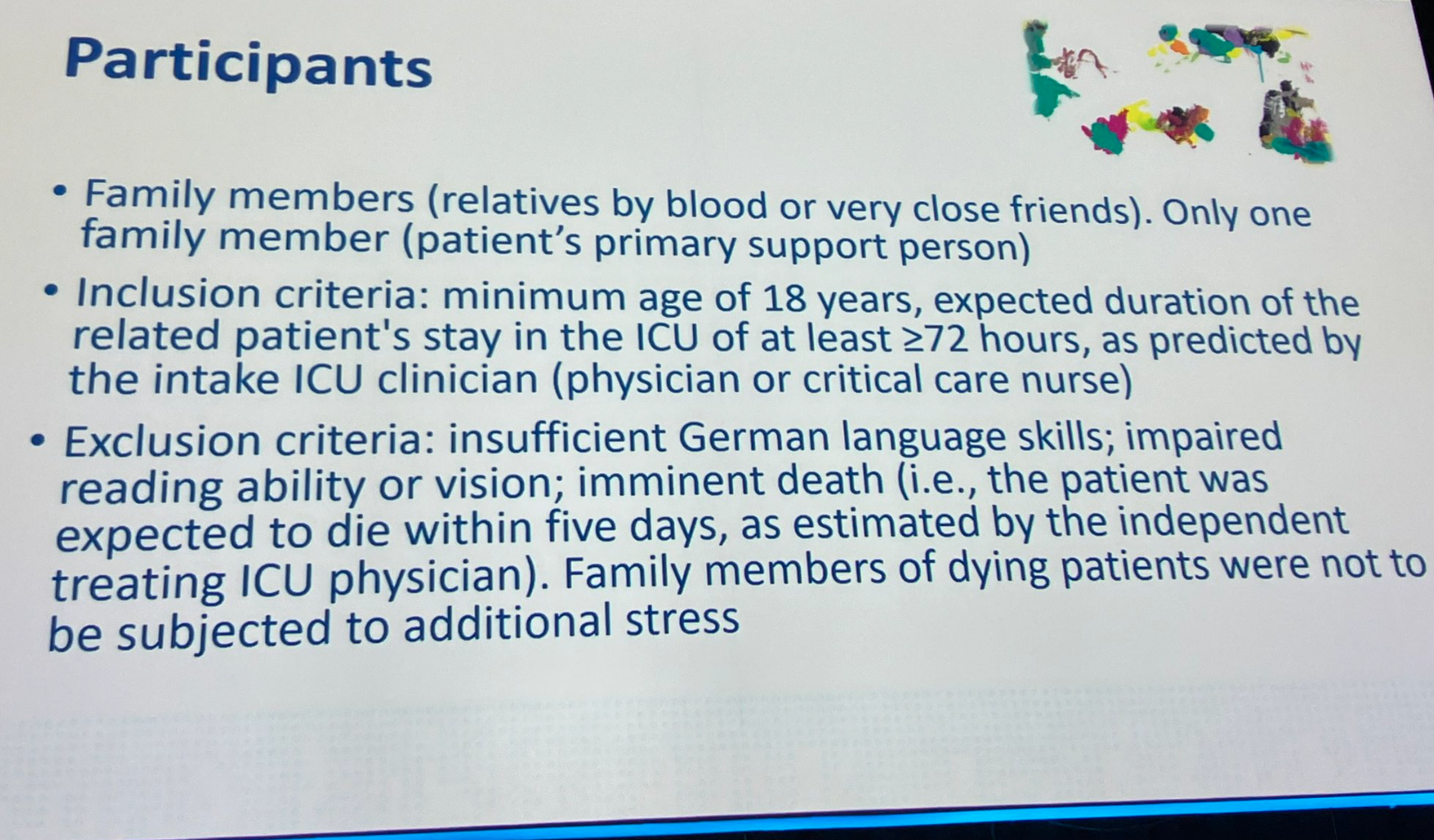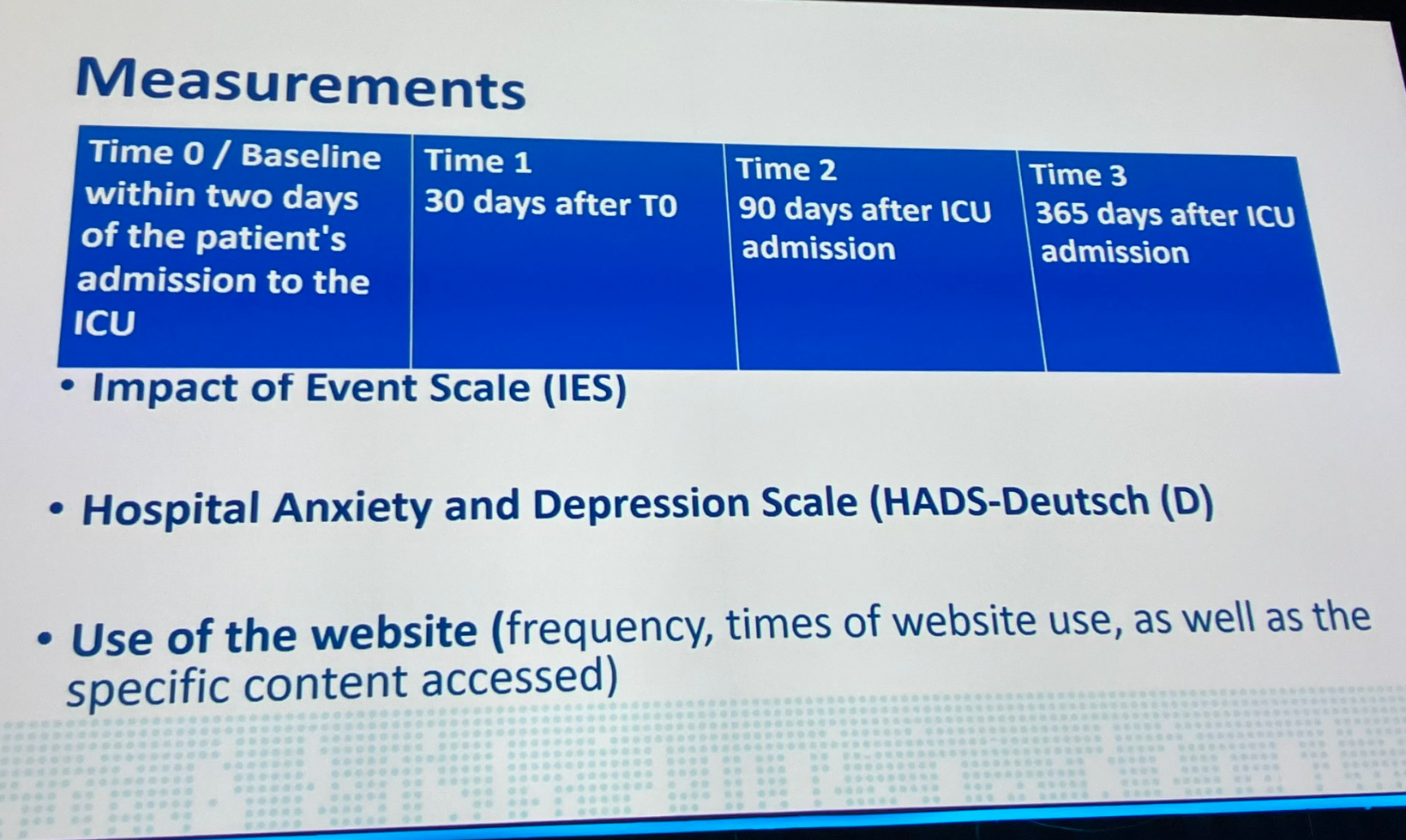ICU hospitalisation of critically ill patients is exceptionally challenging for their family members, leading to anxiety, depression, sleep disturbances, acute stress, and post-traumatic stress disorder (PTSD). A significant portion of these family members, between 20% and 60%, subsequently experience adverse mental health effects. The presence of family members is crucial for patients, either physically or virtually, and it's equally important for the family members themselves as it helps them navigate this difficult situation. Family members require consistent and clear information about their loved one's condition to cope effectively. A lack of such information has been linked to PTSD symptoms.
The ICU-Families-Study aimed to measure the psychological burden experienced by these family members, assess the potential of a website providing specific information to alleviate PTSD symptoms, and determine the willingness of family members to use such a website. This was a double-blind, randomised, and placebo-controlled study involving multiple medical centres in Austria and Switzerland.

The study involved 89 family members of critically ill patients, with an average age of 47.3 years, primarily female (66.3%). Of these, 46 were given access to an intervention website, while 43 used a control website. The baseline Impact of Event Scale (IES) score was 27.5, with 50% showing clinically significant PTSD symptoms. At the primary endpoint approximately 30 days after inclusion, the mean IES score was 24, with no significant difference between the intervention and control groups (23.9 vs. 24.1). The Hospital Anxiety and Depression Scale (HADS) score at the same point was 12.2 and was similar in both groups. The intervention website received more usage than the control website, with a total of 1386 clicks, mainly from the intervention group (1021 vs. 365). The study recruitment was stopped prematurely in February 2020 due to the COVID-19 pandemic.

These findings show that family members of critically ill patients frequently experience significant PTSD symptoms, but providing online information about critical illness did not lead to a reduction in these symptoms.
Source: Intensive Care Medicine, #LIVES2023
Slides credit: Presentation at #LIVES2023
Image Credit: ESICM


























